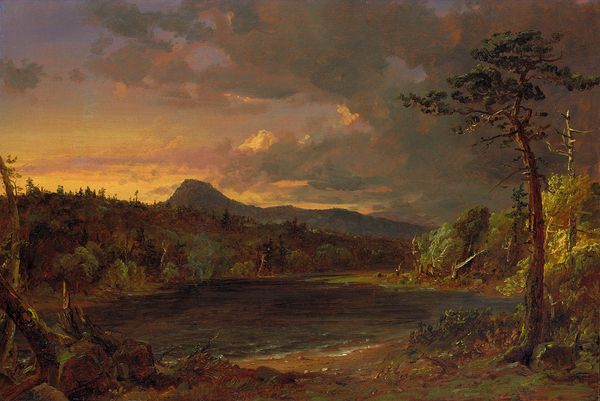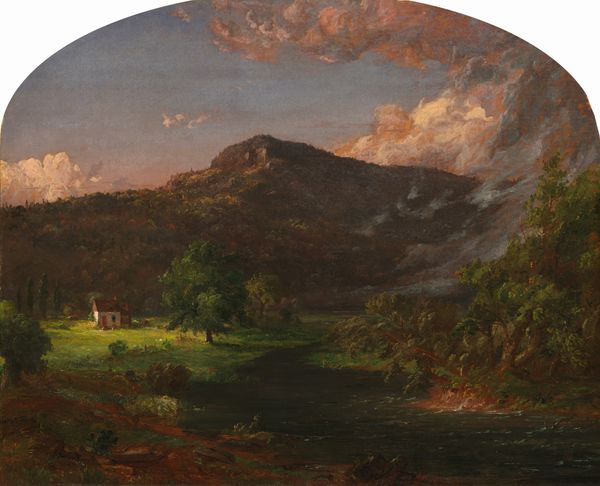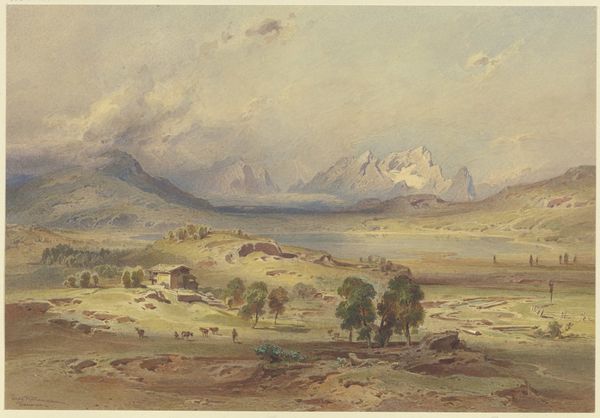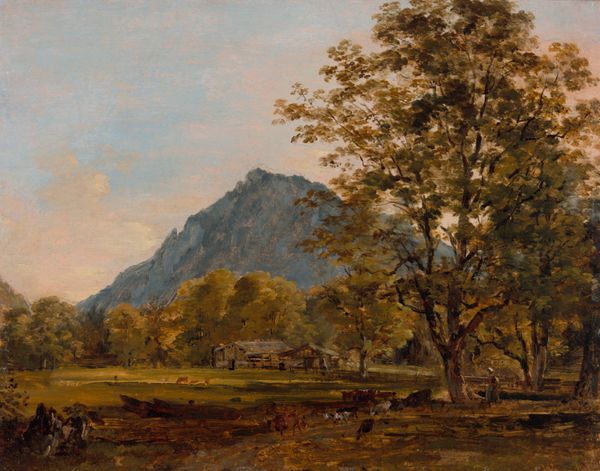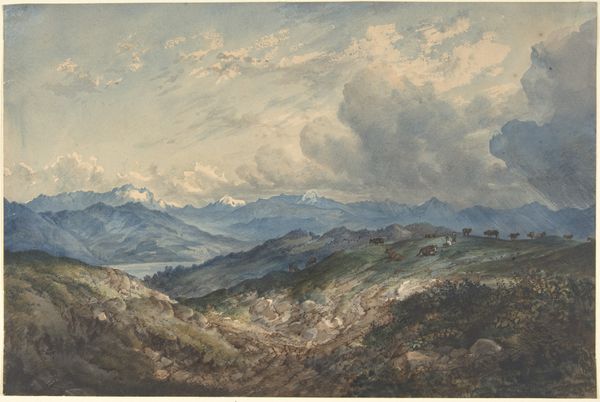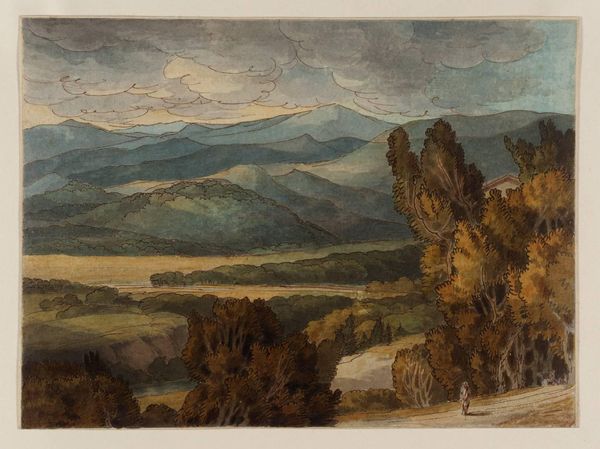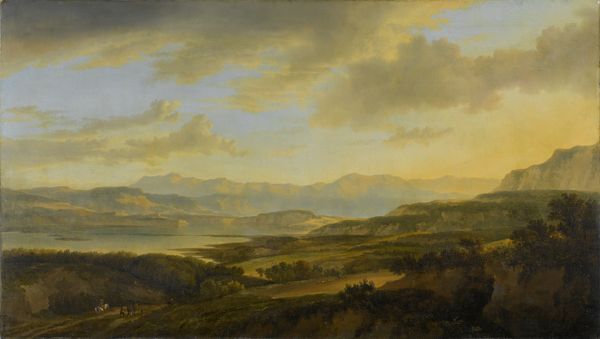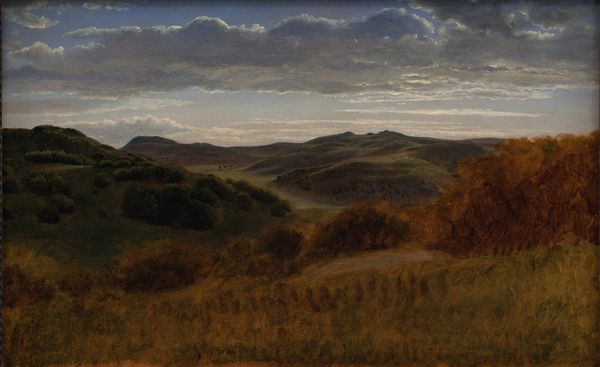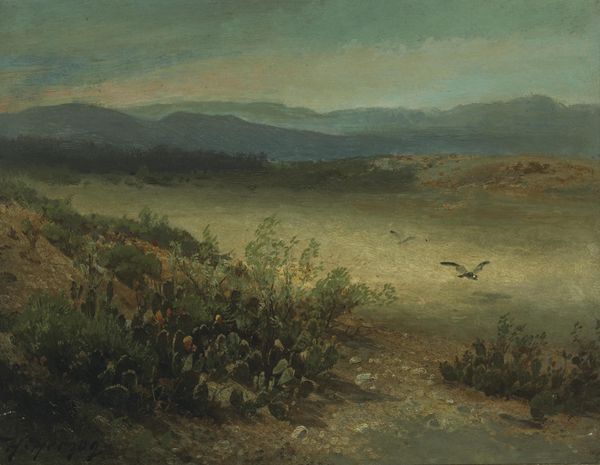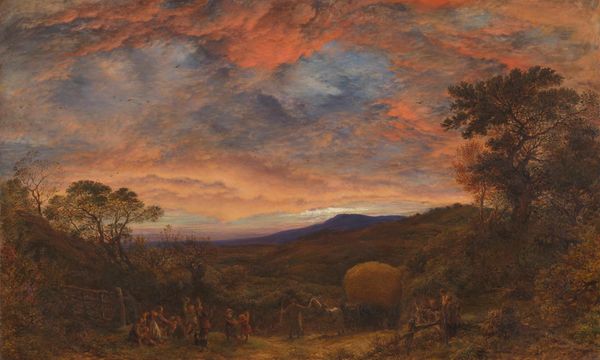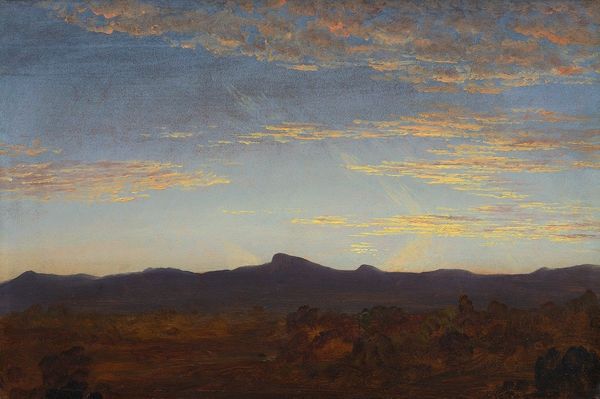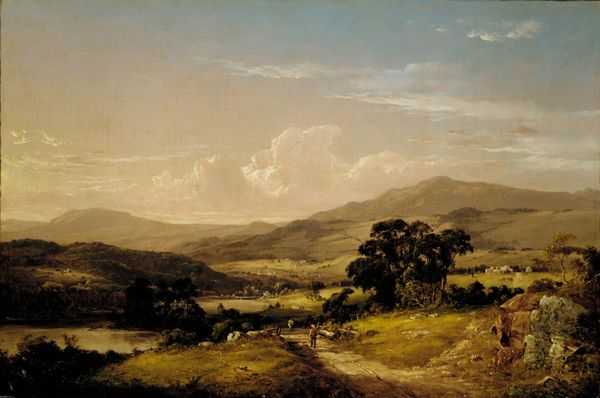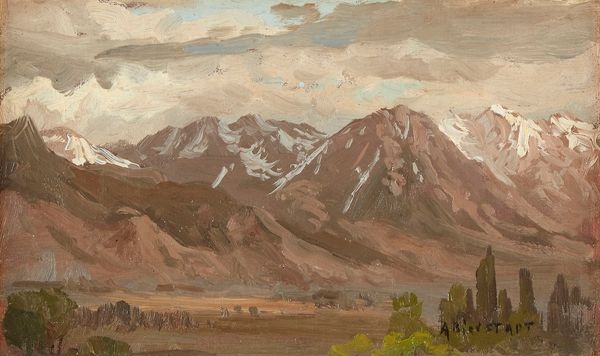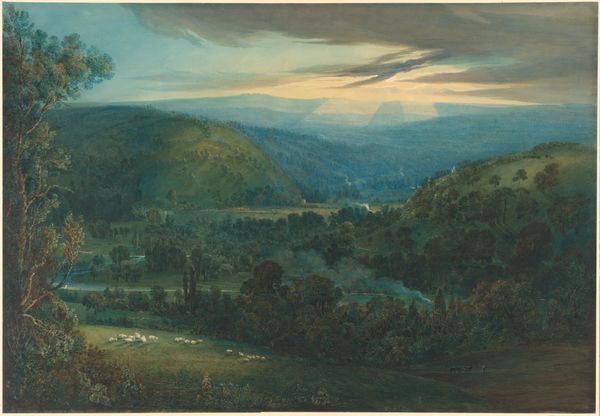
Dimensions: unframed: 24 x 44 1/8 in. (60.96 x 112.08 cm) framed: 31 7/8 x 51 3/4 in. (80.96 x 131.45 cm)
Copyright: National Gallery of Art: CC0 1.0
Editor: Here we have Jasper Francis Cropsey’s "View of Mt. Washington," painted in 1881 using oil paints. I’m immediately struck by the sublime contrast – a golden, inviting valley juxtaposed against a rather imposing, almost threatening, sky and mountain range. How do you interpret this work? Curator: This painting speaks volumes about the cultural context of landscape art in America during the late 19th century. The Hudson River School, of which Cropsey was a key member, really shaped how Americans perceived their environment and the relationship between nature and nationhood. Does anything strike you about where and why such paintings were exhibited? Editor: Well, they were obviously meant to capture the grand scale of American landscapes, often ending up in wealthy homes or public institutions. Was it just about aesthetics, or something more? Curator: It’s more intricate than just aesthetics. These landscapes played a vital role in constructing a national identity, particularly during a time of rapid industrialization and urbanization. Paintings like "View of Mt. Washington" reminded people of the nation’s natural resources, contributing to environmental debates that have shaped policies of today. Think about how the depiction of untamed wilderness in these paintings helped define a sense of American exceptionalism. Where is this exceptionalism today, in your opinion? Editor: So, it was almost a form of visual propaganda, promoting an idealized version of American wilderness as a unique national asset. It seems that what I interpreted as simply the sublime becomes complex nationalism. Curator: Precisely. It is in understanding this connection, as well as how the image's politics translate into the cultural debates, we begin to comprehend the lasting significance of this work, and consider the artist's place in culture wars that have taken place since this period. Editor: That's a perspective I hadn't considered. Thanks, I see much more to this landscape now.
Comments
No comments
Be the first to comment and join the conversation on the ultimate creative platform.
